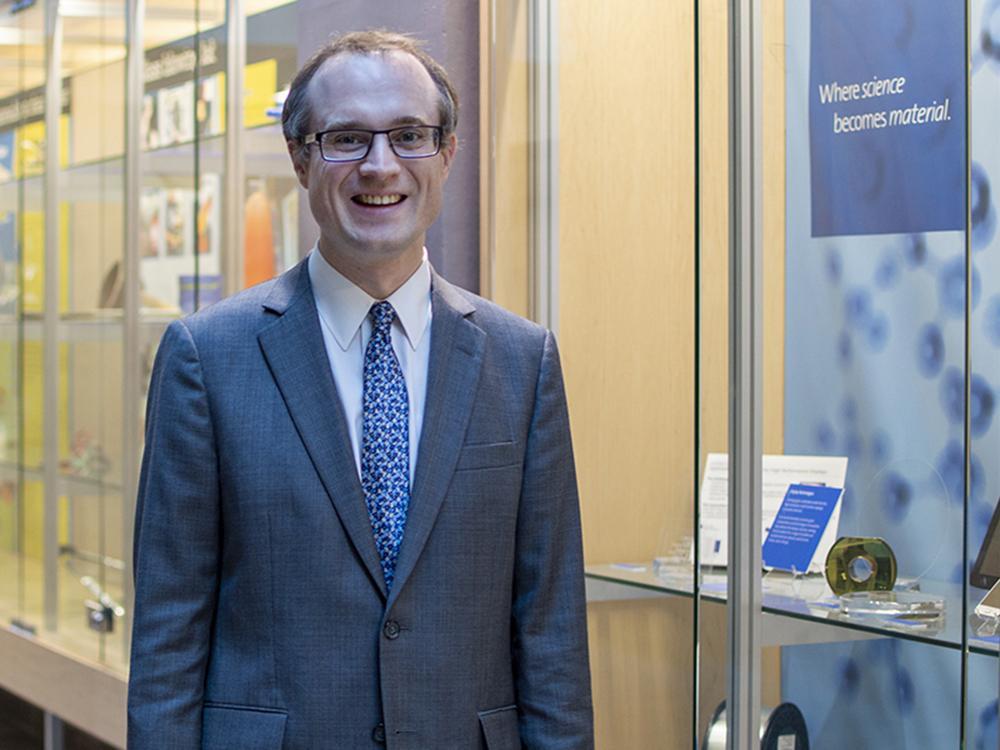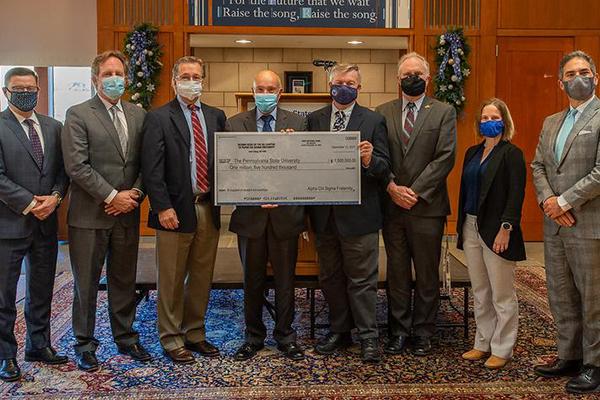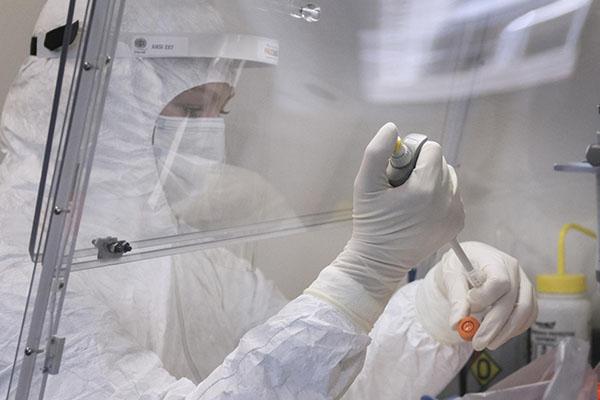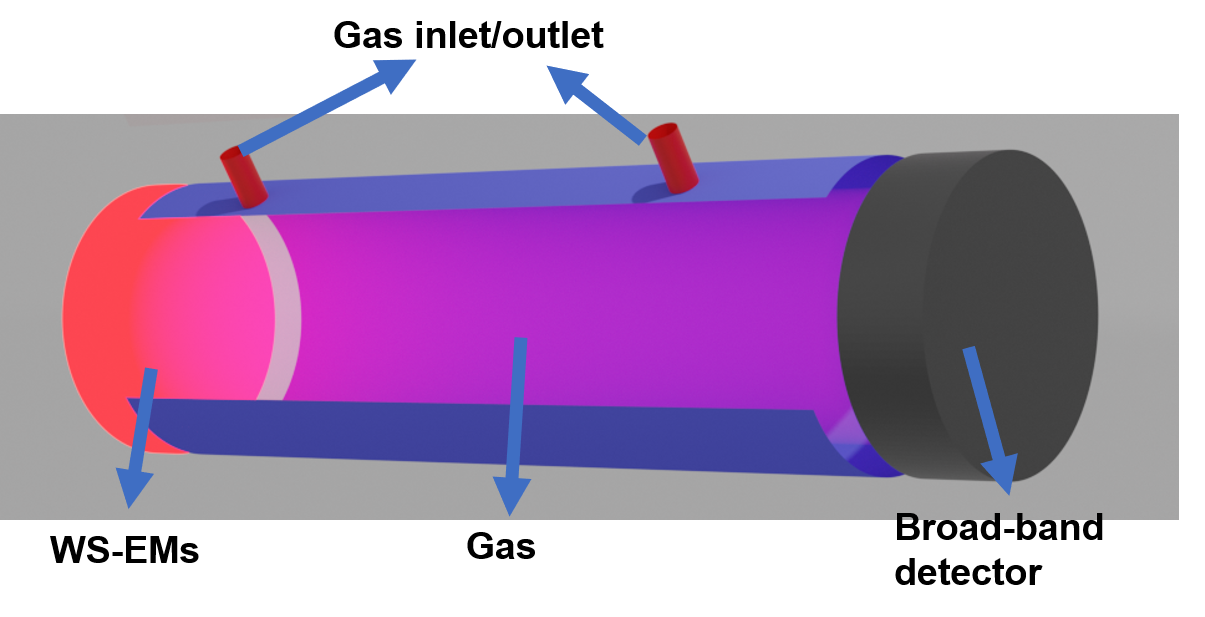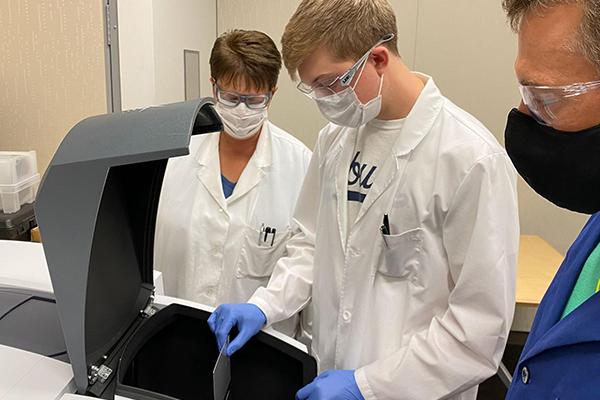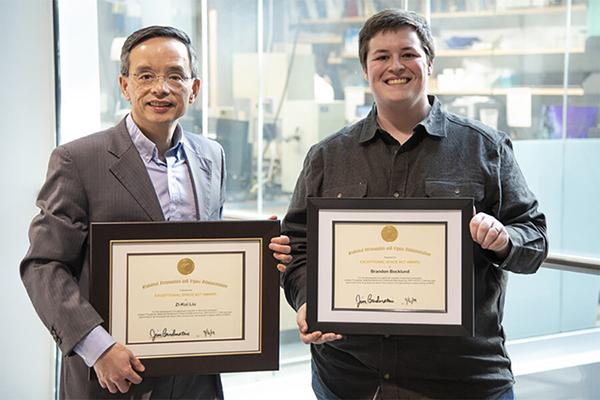John Mauro, professor of materials science and engineering at Penn State, has been named a member of the National Academy of Engineering (NAE). He was selected for “developing and applying data-driven models and machine learning that enable high-strength, damage-resistant glasses," according to the NAE.
Penn State's Office of the Vice Provost for Faculty Affairs has named 21 distinguished professors for 2022. Joan Redwing, professor of materials science and engineering, was named distinguished professor.
The National Academy of Engineering (NAE) has elected 111 new members and 22 international members, announced NAE President John L. Anderson today. This brings the total U.S. membership to 2,388 and the number of international members to 310.
John C. Mauro, professor, Department of Materials Science and Engineering, Penn State, was elected for developing and applying data-driven models and machine learning that enable high-strength, damage-resistant glasses.
Penn State alumni of the national professional chemistry fraternity Alpha Chi Sigma have committed $1.5 million to endow scholarships in the three colleges where most of their members earned their degrees: the College of Earth and Mineral Sciences, the College of Engineering, and the Eberly College of Science. Each $500,000 fund will generate scholarships for undergraduates who demonstrate financial need and academic achievement or promise.
Penn State's research expenditures reached a total of $993.1 million in fiscal year 2020-21, an overall 1.5% decrease from the previous year, according to Senior Vice President for Research Lora Weiss. “Despite this slight decrease, we were able to maintain a solid research portfolio during the pandemic, even while we curtailed hiring, limited purchasing of equipment, and severely restricted all travel,” Weiss said. “Our federal expenditures remained healthy and our industry partners continued investing in our research.”
If you look at the back of a credit card, a driver’s license, or even a dollar bill, you will likely notice a hologram, or iridescent feature, that appears to change color when viewed at different angles. These color-shifting security features have been around for decades, allowing ample time for people to find ways of counterfeiting the effects. Even so, these types of highly visible and easily recognized color-shifting features are still among the most commonly used optical security element – and Penn State-affiliated startup Chromatir may have discovered a more secure and customizable way to implement this effect.
Three Penn State faculty and two graduate students have received the 2021 Rustum and Della Roy Innovation in Materials Research Award.
Vanderbilt and Penn State engineers have developed a novel approach to design and fabricate thin-film infrared light sources with near-arbitrary spectral output driven by heat, along with a machine learning methodology called inverse design that reduced the optimization time for these devices from weeks or months on a multi-core computer to a few minutes on a consumer-grade desktop.
Faced with a growing workload in its research labs, the Materials Research Institute (MRI) met the challenge by offering Penn State students an opportunity that most materials science and engineering undergraduates normally never receive.
Society’s use of materials, with its humble beginnings in the Stone Age with natural materials, advanced through the Bronze Age and Iron Age with man-made alloys to the current Industrial Age and Modern Era. Now, in the 21st century, the functionality of society relies significantly on digital technologies in terms of integration of cyber-physical systems through digitization of knowledge, and the demand for new materials to enable and promote the digital age will continue to increase.


